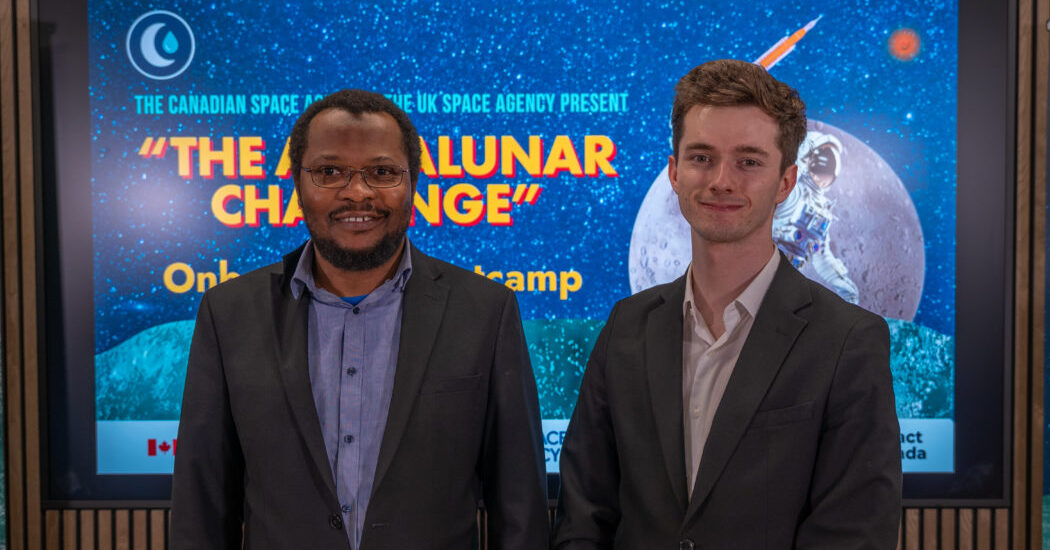A Buncrana man is part of a team of scientists in Glasgow who have reached the final of a prestigious scientific research challenge that wants to find ways to make water discovered on the moon safe for humans to drink.
23-year-old Shaun Fletcher is currently studying for a PhD in Chemistry at the University of Glasgow, and along with Dr Lukman Yusuf has created a project that has reached the final of the challenge.
Fletcher and Yusuf’s project, “Lunasonic” is one of 10 UK projects selected for the final stage.
They will now receive £30,000 of funding, as well as technical and design support to further research their project and its technology before the final submission in January of 2025.
Lunasonic’s vision for making the moon’s water drinkable would see “dirty ice collected from the moon’s surface… melted, and large soil particles removed. Following this initial treatment, the water is pumped into a ‘sonoreactor’ which uses ultrasound to split and remove volatile compounds and gases, destroy pollutants and cause lunar dust to clump together for easy removal.”
“The system would then pass the water through a filter bed of lunar soil, which is rich in calcium, magnesium and aluminium oxide, to remove final contaminants – similar to how a household water filter works.”
In a release by the University of Glasgow, Shaun says that their project could also have applications at home now, as well as on the moon in the future.
Mr Fletcher said: “While the Lunasonic project could help future space missions easily access clean drinking water, it could also make a difference much closer to home. Ultrasonic treatment has been shown to be effective at removing emerging pollutants on Earth, including medicines and dyes, which existing wastewater treatment plants are not always equipped to deal with. Deploying our system in remote regions, or other locations without robust water infrastructure, could provide improved water quality for local people.”
His project partner, Dr Yusuf, told the University that “we’re thrilled to have been chosen as finalists in the Aqualunar Challenge, which gives us the opportunity to develop some potentially transformative technology. Lunasonic builds on existing research at the Symes Group looking at ways to process lunar regolith to provide sources of water, and we’re looking forward to further developing our sonoreactor technology with the funding from the challenge.”








